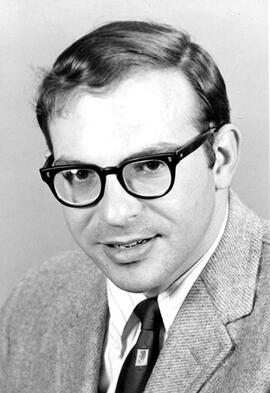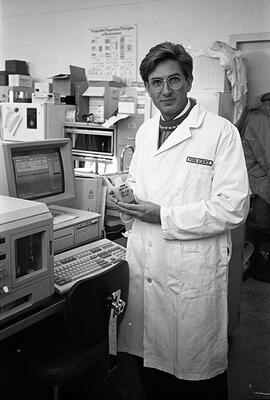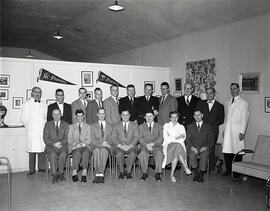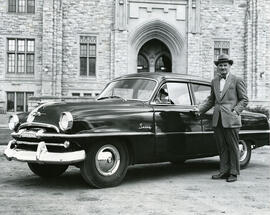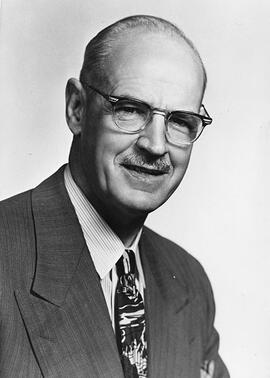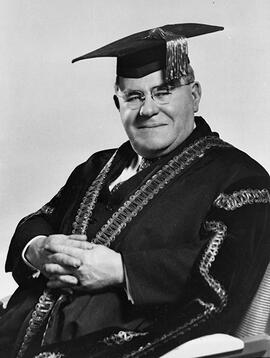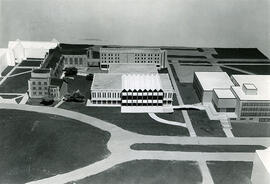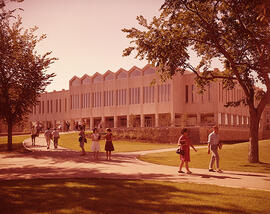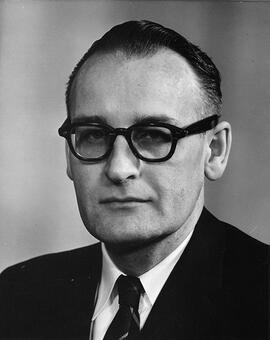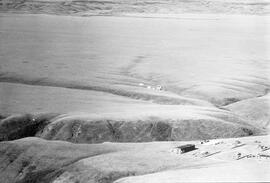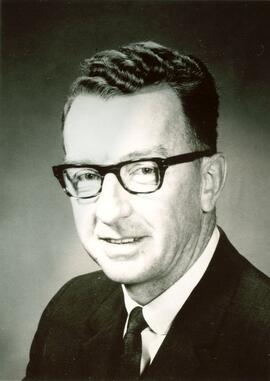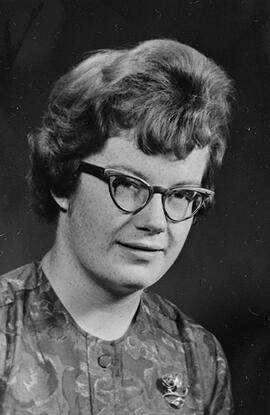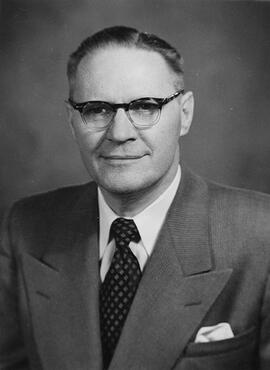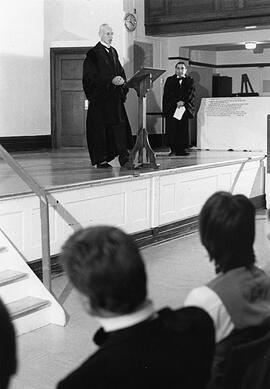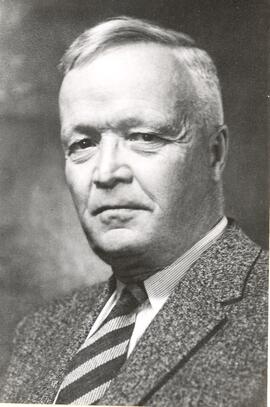Head and shoulders image of Dr. Jim Mawdsley, dean of Engineering.
Bio/Historical Note: Dr. James Buckland (Jim) Mawdsley was born on 22 July 1894 near Siena, Italy, the son of British-American parents. In 1904 the Mawdsley family left Italy and settled in the village of Gainsborough, Saskatchewan. After receiving his public and high school training in Saskatchewan he entered McGill University in 1913. Dr. Mawdsley’s career, like that of many of his contemporaries, was interrupted by the First World War. Twice wounded in France, first with the Princess Patricia Canadian Light Infantry and then as a pilot with the Royal Flying Corps, he was awarded an MBE at the end of the war. In 1919 Dr. Mawdsley returned to McGill and two years later graduated in Mining Engineering. He then went to Princeton University where he obtained his DPhil in Geology in 1924. That same year he joined the Geological Survey of Canada and for the next five years applied his scientific knowledge to the problems of the regional geology of northwestern Quebec. Dr. Mawdsley accepted in 1929 the appointment of professor and head of the Department of Geology at the University of Saskatchewan, a position he held until he became dean of Engineering in 1961 and also the director of the Institute for Northern Studies. In 1963 Dr. Mawdsley retired as dean and was then able to devote all his time to the affairs of the institute. In addition to his academic duties, his professional activities included field work in northern Saskatchewan for the Geological Survey of Canada and the Saskatchewan Department of Mineral Resources, and private consulting assignments took him to other parts of northern Canada, to the United States and Great Britain. Dr. Mawdsley was the author of 51 scientific papers and his honours were many. He was elected a Fellow of the Royal Society of Canada in 1933 and was chairman of Section IV for the year 1954-55. He was president of the Geological Association of Canada during 1955-56 and of the Canadian Institute of Mining and Metallurgy for 1961-62. In 1953 Dr. Mawdsley was awarded the Institute's Barlow Memorial Medal in recognition of his paper entitled "Uraninite-bearing deposits, Charlebois Lake area, northeastern Saskatchewan". He was a Fellow and Director of the Royal Canadian Geographical Society, a Fellow of the Geological Society of America, a member of the Society of Economic Geologists, the Engineering Institute of Canada, and the Association of Professional Engineers of Saskatchewan. Dr. Mawdsley died very suddenly on 3 December 1964 at the age of 70. As director of the Institute for Northern Studies, he played a major role in its organization and development and exerted a very great influence on research in northern Canada. Named in his honour is Mawdsley Lake, located at 56° 47' north latitude and 106° 6' west longitude in north central Saskatchewan.

